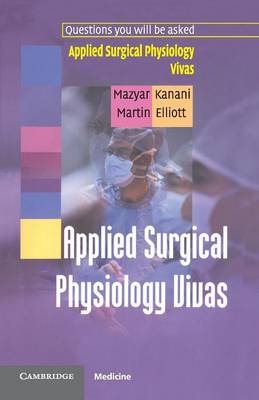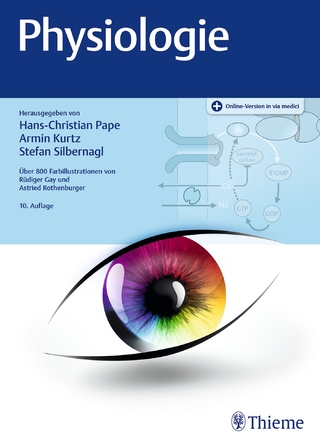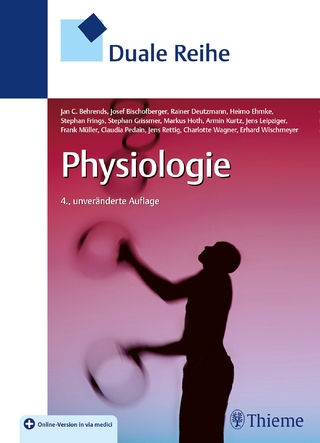
Applied Surgical Physiology Vivas
Cambridge University Press (Verlag)
978-0-521-68320-3 (ISBN)
An understanding of basic sciences is the cornerstone of medical and surgical training, and viva examinations in particular remain a source of anxiety for many candidates. Applied Surgery Physiology Vivas follows the same format as the hugely popular General Pathology Vivas and Surgical Critical Care Vivas. It gives candidates a means of practising some of the most common questions that they will be asked in their viva examinations, with detailed model answers and diagrams to highlight key points where necessary. Pocket-sized for portability, and packed with useful information in an easy-to-use A-Z format, this book will help the reader to broaden their knowledge base and, by practising the vivas, gain confidence in their examination technique.
List of abbreviations; Preface; 1. A change in posture; 2. Acid-base; 3. Action potentials; 4. Adrenal cortex I; 5. Adrenal contex II - clinical disorders; 6. Adrenal medulla; 7. Arterial pressure; 8. Autonomic nervous system (ANS); 9. Carbon dioxide transport; 10. Cardiac cycle; 11. Cardiac output (CO); 12. Cell signalling; 13. Cerebrospinal fluid (CSF) and cerebral blood flow; 14. Colon; 15. Control of ventilation; 16. Coronary circulation; 17. Fetal circulation; 18. Glomerular filtration and renal clearance; 19. Immobilization; 20. Liver; 21. Mechanics of breathing I - ventilation; 22. Mechanics of breathing II - respiratory cycle; 23. Mechanics of breathing III - compliance and elastance; 24. Mechanics of breathing IV - airway resistance; 25. Microcirculation I; 26. Microcirculation II; 27. Micturition; 28. Motor control; 29. Muscle I - skeletal and smooth muscle; 30. Muscle II - cardiac muscle; 31. Nutrition: basic concepts; 32. Pancreas I - endocrine functions; 33. Pancreas II - exocrine functions; 34. Potassium balance; 35. Proximal tubule and loop of henle; 36. Pulmonary blood flow; 37. Renal blood flow (RBF); 38. Respiratory function tests; 39. Small intestine; 40. Sodium balance; 41. Sodium and water balance; 42. Starvation; 43. Stomach I; 44. Stomach II - applied physiology; 45. Swallowing; 46. Synapses I - the neurmuscular junction (NMJ); 47. Synapses II - muscarinic pharmacology; 48. Synapses III - nicotinic pharmacology; 49. Thyroid gland; 50. Valsalva manoeuvre; 51. Venous pressure; 52. Ventilation/perfusion relationships.
| Erscheint lt. Verlag | 1.1.2004 |
|---|---|
| Zusatzinfo | Worked examples or Exercises |
| Verlagsort | Cambridge |
| Sprache | englisch |
| Maße | 124 x 186 mm |
| Gewicht | 211 g |
| Themenwelt | Medizin / Pharmazie ► Medizinische Fachgebiete ► Chirurgie |
| Studium ► 1. Studienabschnitt (Vorklinik) ► Physiologie | |
| ISBN-10 | 0-521-68320-3 / 0521683203 |
| ISBN-13 | 978-0-521-68320-3 / 9780521683203 |
| Zustand | Neuware |
| Haben Sie eine Frage zum Produkt? |
aus dem Bereich


